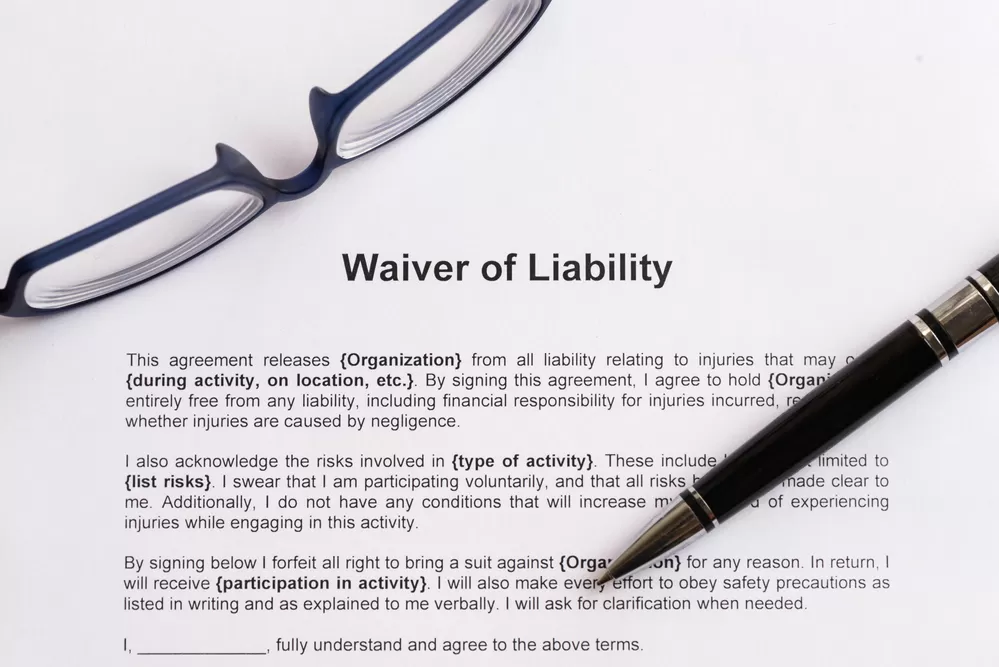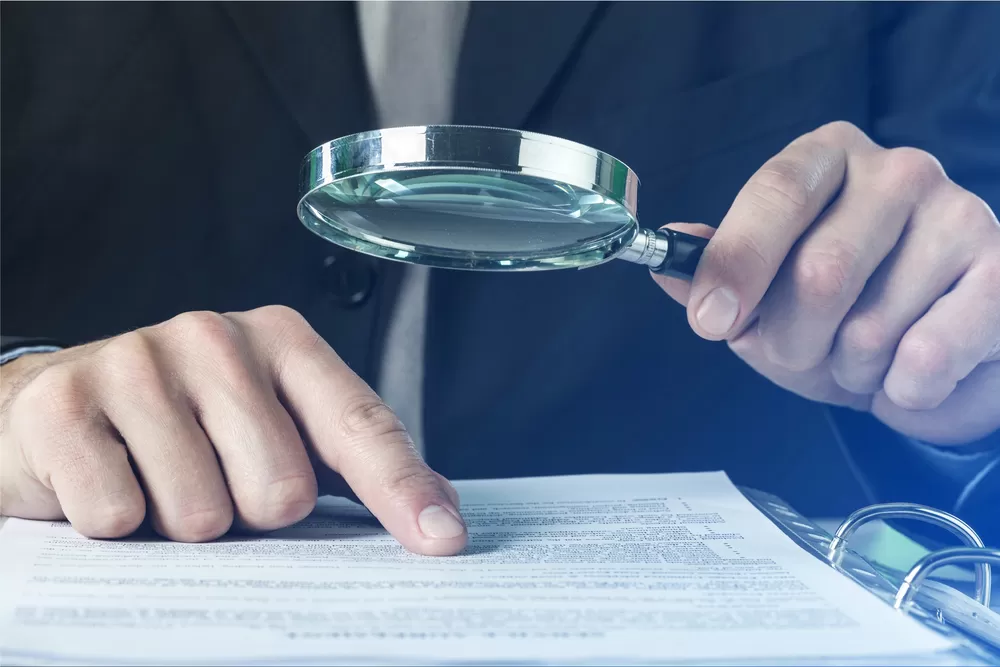Every year, millions of Americans sign waivers of liability, agreeing not to hold businesses responsible for injuries sustained during various activities. Despite these waivers, accidents still happen frequently.
There are over 400,000 injuries related to exercise and recreational equipment each year. Whether it’s joining a gym, participating in a sports event, or embarking on an adventure, signing a waiver is a common part of everyday life. But what happens when you get injured despite signing away your rights? Can you sue after signing a waiver?
What is a Waiver of Liability and Can You Sue After Signing a Waiver?

A waiver of liability is a legal document that participants sign before engaging in certain activities, agreeing not to hold the organization responsible for any injuries they might sustain. You may commonly come across these waivers at businesses such as gyms, sports events, and recreational activity providers trying to protect themselves from lawsuits. By signing, you acknowledge the risks involved and agree to participate at your own risk.
Purpose of Waivers
The primary purpose of a waiver is to:
- Limit Legal Liability: They protect businesses from lawsuits arising from participant injuries.
- Inform Participants: They make participants aware of the potential risks involved in the activity.
- Transfer Risk: They shift the responsibility for injuries from the business to the participant.
These waivers are prevalent in everyday activities like joining a gym, participating in a sports league, or going skydiving.
Possibility of Suing After Signing a Waiver
Despite signing a waiver, it is still possible to sue under certain conditions. The enforceability of a waiver depends on various factors, including the clarity of the waiver’s language and the circumstances surrounding the injury.
Legal Principles Behind Waivers
The basic legal principles behind waivers include the concepts of assumption of risk and informed consent. By signing a waiver, you acknowledge that you understand the risks involved in the activity and agree to participate despite those risks. However, for a waiver to be legally binding, it must be clear, specific, and voluntarily signed.
Understanding the Legal Nuances of Waivers

Understanding the legal nuances of waivers of liability is crucial for anyone who signs them. Key points to consider include:
- Clear Language: Waivers must use clear and specific language to outline the risks involved and the rights being waived. Ambiguities can render a waiver unenforceable.
- Voluntary Agreement: A waiver must be signed voluntarily, without coercion or undue pressure. If you felt forced to sign, the waiver might not hold up in court.
- Scope of the Waiver: The scope of the waiver should be reasonable and related to the activity. Overly broad waivers that attempt to waive all liability for any situation might be invalid.
- Public Policy: Waivers that violate public policy, such as those attempting to waive liability for gross negligence or essential services, are generally unenforceable.
- Minors: In many states, waivers signed by minors or by parents on behalf of minors may not be enforceable, as minors cannot legally enter into contracts.
- State Laws: Each state has its own laws and interpretations regarding waivers. Understanding your state’s specific regulations is essential.
By being aware of these factors, you can better understand your rights and the potential enforceability of any waiver you sign.
State-Specific Considerations Regarding Waivers
Understanding the enforceability of waivers of liability requires examining state-specific laws and court interpretations. Washington D.C., Maryland, and Virginia handle waivers slightly differently, including:
Washington D.C.
In Washington D.C., courts tend to scrutinize waivers of liability closely. For a waiver to be enforceable, it must be clear and specific about the risks involved and the rights being waived. The court usually won’t uphold general and ambiguous waivers (Maiatico v. Hot Shoppes, Inc., 109 U.S. App. D.C. 310, 312 (1961). Additionally, waivers cannot protect against gross negligence or intentional misconduct (Moore vs. Waller | 930 A.2d 176 | D.C. (2006).
For example, if you signed a waiver before participating in a recreational activity and were injured due to poorly maintained equipment, the waiver might not protect the business from liability due to their gross negligence. If you believe your waiver was unclear or your injury was due to negligence, contacting a Washington D.C. personal injury lawyer can help you understand your rights and potential claims.
Maryland
Maryland courts also require that waivers of liability be clear and unambiguous. Waivers must specifically outline the risks involved and the rights being waived. Similar to Washington D.C., Maryland does not enforce waivers that attempt to waive liability for gross negligence or intentional harm (Adloo v. H.T. Brown, 344 Md. 254).
For instance, if you sustained injuries during a kayaking tour because the tour operator failed to provide proper safety equipment, the waiver you signed may not be enforceable. Maryland’s legal system emphasizes the need for transparency and fairness in waivers.
If you have sustained an injury in Maryland and question the validity of the waiver you signed, consulting a Maryland personal injury lawyer can provide clarity and legal guidance.
Virginia
Virginia takes a slightly different approach to waivers of liability. While clear and specific waivers are generally enforceable, Virginia courts are more likely to uphold these agreements compared to D.C. and Maryland.
The state also recognizes indemnity clauses, which can shift liability to another party, as an exception to standard liability waivers. These clauses can sometimes override waivers, making businesses still accountable under certain conditions.
However, waivers cannot cover gross negligence or intentional misconduct (Hiett v. Lake Barcroft Community Assoc., 244 Va. 191, 194-195 (1992). For example, if you signed a waiver for a sports event and suffered an injury due to intentional harm caused by event staff, the waiver would not protect the organization.
For injuries sustained in Virginia, if you believe the waiver you signed should not apply, contacting a Virginia personal injury lawyer can help you navigate the complexities of state law and pursue a claim.
Understanding Waivers and Legal Recourse

While waivers of liability are commonly used to protect businesses, they are not always enforceable, especially in cases of gross negligence or intentional harm. Understanding the specific laws in Washington D.C., Maryland, and Virginia is a critical component for evaluating your rights after an injury. If you’ve sustained injuries and you’re wondering if you can sue after signing a waiver, consulting with an experienced personal injury lawyer can help you understand your rights.
Contact our staff at Koonz, McKenney, Johnson & DePaolis, LLP for a free consultation to discuss your situation and explore your legal options.

